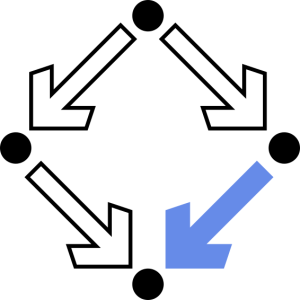Project Seminar "Formal Methods II" (SS 2012)
Abschnittsübersicht
-
Wednesday, 12:30-14:00, Hagenberg Seminar Room, Start: March 14
If you would like to participate in this seminar but prefer another time or place (e.g. at the JKU campus), please contact Wolfgang Schreiner.
In this seminar, we explore current research and systems for specifying and verifying computer programs (specification languages, program verifiers, model checkers, ...). This continues the seminar of the previous semester.
To take part in the seminar, you have to enrol in the KUSSS system. If you also login in Moodle and register as a course participant, you will receive per email all messages posted in the Announcements forum and can yourself post messages in the Questions and Answers forum.
-
- Wolfgang Schreiner: Introduction and Organization
- Wolfgang Schreiner: The LogicGuard Project.
-
- Michel Krieger: Designing a wireless communciation protocol.
-
- Anna Kotyk: Symbolic Modeling of Complex Functions with Usage of the Enlargening Technique (presentation of master thesis work)
-
- Rachel Sun: Presentation of Master Thesis Status.
-
- Temur Kutsia: Conditional Strategic Hedge Transformations
-
- Franz Lichtenberger: Towards Coalgebraic Specifications
-
- Temur Kutsia: A Coalgebra as an Intrusion Detection System
-
- Günter Landsmann: Monads in Category Theory
- Johannes Middeke: Monads in Haskell
-
- Wolfgang Schreiner: Swinging Types
-
- Wolfgang Schreiner: Dialgebraic Specification and Modeling
-
- Wolfgang Schreiner: Algebraic-coalgebraic specification in CoCASL
-
- Tamas Berczes (University of Debrecen): A generalized queueing network model to study Proxy Cache Servers
In this talk we treat a modification of the performance model of Proxy Cache Servers to a
more powerful case when the inter-arrival times and the service times are generally distributed. First we describe the original Proxy Cache Server model where the arrival process is a Poisson process and the service times are supposed to be exponentially distributed random variables. Then we calculate the basic performance parameters of the modified performance model using the well known Queueing Network Analysis (QNA) approximation method. The accuracy of the new model is validated by means of a simulation study over an extended range of test cases. -
- July 2: George Rahonis: Quantitative Logics and Automata
- July 4: George Rahonis: Tree transformations: the equational point of view
